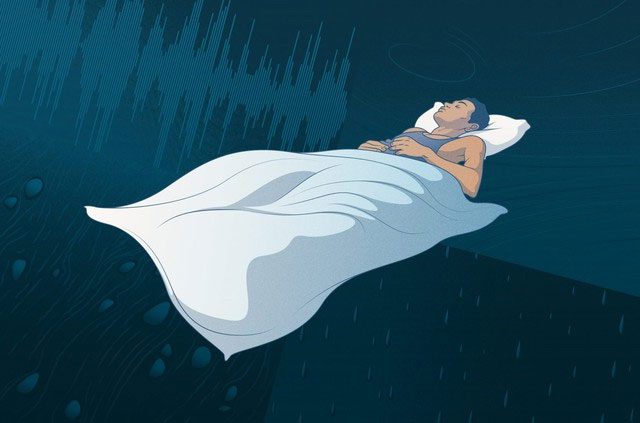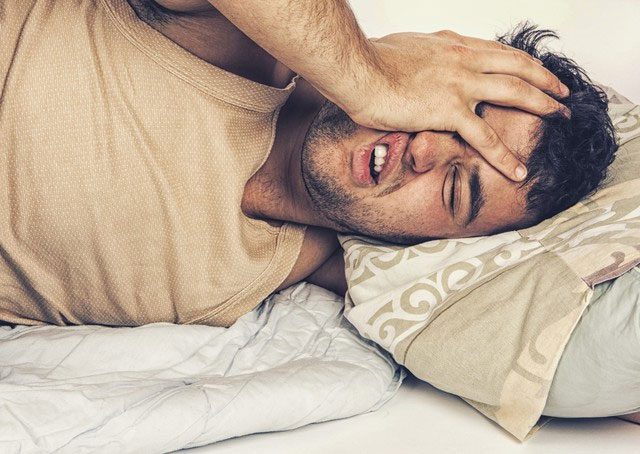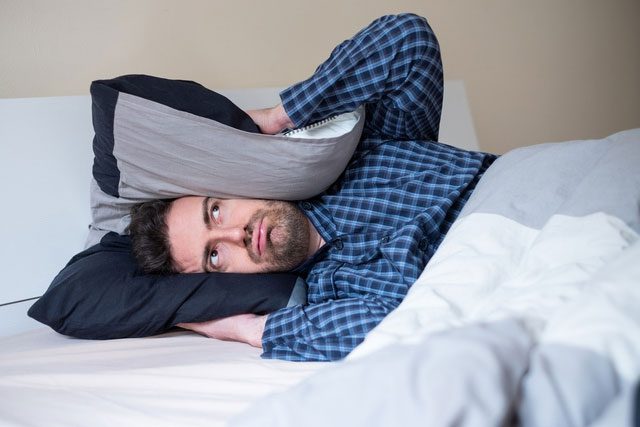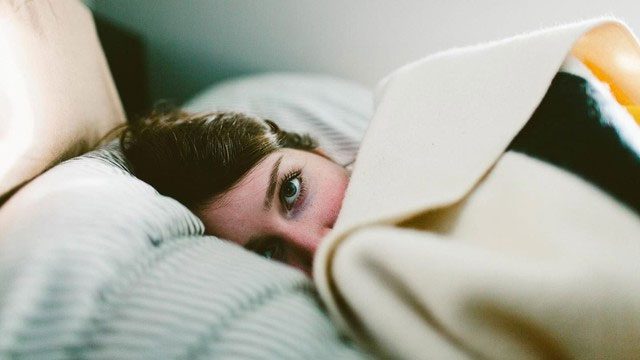This seemingly unbelievable difference sparks endless curiosity in humans. Why do some people’s brains have the “magical” ability to filter out noise like a barrier, while others are so sensitive to sound?
What makes some people able to sleep through noise?
Some individuals may have developed the habit of sleeping in noisy environments. In their daily lives, they might be exposed to loud work environments for extended periods, such as bustling city centers or noisy factories. Over time, their brains gradually adapt to these conditions and become less sensitive to noise. Thus, even in a chaotic environment, they can remain calm and sleep soundly.

Some people have developed the habit of sleeping in noisy environments.
Some individuals are born with a higher tolerance for noise than others. Research shows there are differences among individuals in their sensitivity to noise. Some are more sensitive, while others are less affected by sound. This ability to withstand noise is related to a person’s genes and the stability of their nervous system. Therefore, for those with a high noise tolerance, a loud environment does not significantly impact their sleep.
The reason some people can sleep through noise may also be related to psychological factors. Some individuals possess excellent concentration and self-regulation skills. Even in a noisy environment, they can focus on sleeping and calm their thoughts. This psychological protective mechanism allows them to maintain a relaxed state despite the noise, enabling them to enter a sleeping state.

Some individuals have excellent concentration and self-regulation skills, allowing them to sleep through noise.
How does loud noise affect sleep?
Loud noise can disrupt mental health. When we sleep, our brains still respond to the external environment, especially to certain sounds. Once disturbed by loud noise, our brains can be awakened instantly, interrupting sleep. The frequency of such disturbances makes it harder to enter deep sleep, thus affecting sleep quality. Over time, sleep deprivation can lead to issues like reduced immunity, memory impairment, and severe impacts on daily life and work efficiency.

Once disturbed by loud noise, the brain awakens, disrupting sleep.
Noise also negatively impacts our physical health. Scientific studies have found that individuals exposed to loud environments for extended periods face issues like high blood pressure, unstable heart rates, and reduced immunity. Noise can disrupt the endocrine system, leading to increased secretion of stress hormones in the body, causing a continuous state of stress. In the long term, this stress can severely affect the cardiovascular and digestive systems, increasing the risk of various chronic diseases.
Noise can also affect an individual’s mood and mental health. Prolonged exposure to noise can easily lead to stress, irritability, and depression. According to research, individuals living in loud environments for extended periods are at a significantly increased risk of anxiety and depression. This is related to abnormal neurotransmitter secretion in the brain; under prolonged noise, neurotransmitter levels can become imbalanced, leading to mood swings and instability.

Prolonged noise exposure can easily lead to stress, irritability, and depression.
So how can we cope with loud noise to ensure a good night’s sleep?
- First, you can create a quiet and comfortable environment before sleeping, such as using earplugs or turning on a white noise machine to reduce the interference of external noise.
- Second, you can try relaxation techniques like deep breathing, meditation, etc., to help relieve physical and mental stress for better sleep.
- Additionally, maintaining a regular daily routine is crucial for ensuring good sleep, while also trying to avoid sleeping in noisy environments.
Why are some people more easily awakened by sound?
A person’s sleep quality may be related to their sensitivity to sound. Some individuals are very sensitive to noise, and even small sounds can disrupt their sleep. This sensitivity may be linked to each person’s nervous system; the cochlea of some individuals is more sensitive to sound, making them more easily disturbed during sleep. Moreover, some may suffer from sleep disorders, such as insomnia or sleep apnea, which also increase their likelihood of being awakened by noise.

Some individuals are very sensitive to noise, with even small sounds causing them to lose sleep.
An individual’s biological clock also affects their sensitivity to sound. The human body’s biological clock refers to the internal rhythmic system that controls our sleep-wake cycles. Everyone has a biological clock, and these can differ somewhat, which is why some people are more likely to be awakened by noise late at night while others are more likely to wake up in the morning. This difference may relate to individual genetic factors or may be due to personal lifestyle habits or individual work schedules. Thus, during certain times, even a faint sound may be enough to wake someone from sleep.
Environmental noise is also a significant factor in awakening individuals due to sound. If someone sleeps in a noisy environment, such as traffic sounds, neighbor noise, or machinery, even small sounds are more likely to catch their attention. This is because when we are in a noisy environment, our brains remain alert to respond promptly to potential dangers. Hence, even a small sound can stimulate our attention and wake us from sleep.




















































